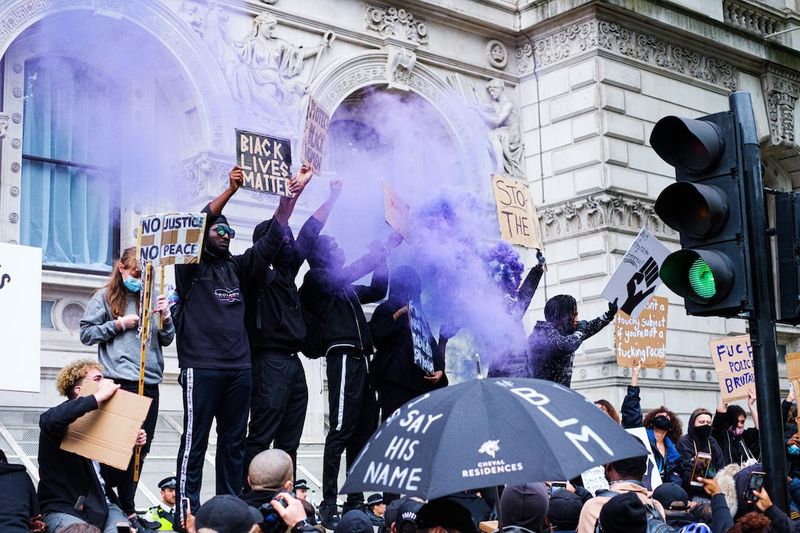Table of Contents
Violence and Repression in Bangladesh Ahead of General Elections: A Deeply Chilling Cycle
Introduction
The recent wave of violent clashes between protesters and police officers, resulting in deaths and numerous arrests, has raised concerns about the state of human rights and democratic freedoms in Bangladesh. As the country approaches the general elections scheduled for January, the escalating crackdown on opposition party members and peaceful protesters has sparked outrage and calls for the Bangladeshi authorities to respect the right to dissent and facilitate peaceful assemblies.
A Complete Clampdown of Dissent
Amnesty International’s regional campaigner for South Asia, Yasasmin Kaviratne, aptly describes the intensified crackdown as a “complete clampdown of dissent” ahead of the upcoming elections. The arrest of over 1,200 opposition party leaders and activists prior to the planned protests demonstrates a worrying trend towards suppressing voices that oppose the ruling government.
The Right to Dissent
Authorities must remember that dissent is not a crime; it is an essential aspect of a functioning democracy. Peaceful protests and criticism are fundamental forms of expressing disagreement and holding those in power accountable. As the Bangladeshi authorities crack down on opposition party members and protesters, their actions not only violate human rights but also undermine the democratic processes that should be cherished in any society.
The Cycle of Killings, Arrests, and Repression
The recurring cycle of killings, arrests, and repression in Bangladesh has deep and chilling implications for human rights before, during, and after the elections. Amnesty International rightly highlights the need for the Bangladeshi authorities to halt the crackdown on protesters and fulfill their duty to facilitate peaceful assemblies. Suppressing dissent only leads to increased tensions, further polarization, and the erosion of democratic values.
The Need for Impartial Investigations
In the aftermath of the violent clashes, it is of utmost importance that the deaths that occurred are impartially, independently, and transparently investigated. The authorities must ensure that those responsible for acts of violence are brought to justice through fair trials, without resorting to the death penalty. It is vital to distinguish between peaceful protesters and the few individuals who engage in violence. The authorities must not use the acts of a few violent individuals as a pretext to restrict the rights of peaceful protesters.
The Role of Law Enforcement
Law enforcement agencies play a crucial role in maintaining order during protests. However, they must adhere to international standards on the use of force. Excessive force should only be employed when strictly necessary to protect lives and maintain public safety. Any deviation from these standards not only violates human rights but also escalates the crisis and exacerbates tensions.
Deescalation Measures
As the country heads towards the general elections, the government of Bangladesh must take all appropriate measures to deescalate the situation. Tensions are expected in the lead-up to elections, but the authorities have an obligation to ensure the safety and security of all citizens. Repressing opposition voices and cracking down on protesters only further inflame the situation. Through dialogue, inclusivity, and respect for democratic principles, the government can foster an environment of trust and cooperation.
The Role of International Community
The international community should closely monitor the situation in Bangladesh and hold the authorities accountable for any human rights violations. It is crucial for foreign governments, human rights organizations, and international bodies to condemn violence and repression, while urging the Bangladeshi authorities to respect the right to dissent. Diplomatic efforts, engagement, and support for democracy and human rights can play a vital role in promoting a peaceful and fair electoral process in Bangladesh.
Conclusion
The recent arrests of opposition party members, violent clashes between protesters and police, and the subsequent crackdown on dissent in Bangladesh are deeply concerning. As the country prepares for the general elections, it is imperative that the authorities respect the right to dissent, facilitate peaceful assemblies, and conduct impartial investigations into any violence. By upholding democratic values, promoting dialogue, and ensuring the safety of citizens, Bangladesh can navigate this challenging period and emerge with strengthened democratic institutions.

<< photo by Ehimetalor Akhere Unuabona >>
The image is for illustrative purposes only and does not depict the actual situation.
You might want to read !
- Mozambique’s Violent Crackdown: Revealing the Dark Side of Policing
- The Urgent Need for Social Media Companies to Address the Escalation of Online Hate and Censorship in Israel-Palestine
- Punishing the Unnecessary Use of Force: Holding Accountable Those Responsible for the Crackdown in Guinea
- Editorial Exploration: Assessing the urgency for action from the UN General Assembly regarding the situation in Gaza.
Editorial Output: “Urgent Call to Action: UN General Assembly Must Address Gaza Crisis”
- Israel’s Continued Obstruction: Humanitarian Aid Denied in Gaza
- Investigating the Dark Side: Unraveling Police Violence in Mozambique
- Exploring Global Activism: Urban Movements Map Aims to Connect and Inspire on World Cities Day
- Ghana’s Shift Towards Human Rights-Based Mental Healthcare
- Crisis in the Middle East: Escalating Violence Threatens Innocent Lives
- Rising Incidents of Attacks on Students and Schools: Evaluating the Efficacy of the UN Resolution
- Why Countries Must Rally Behind an ICC Investigation on Israel-Palestine
- The Secret Supreme Court Decision: Urgent Plea to Halt Execution of Two Young Men in Saudi Arabia
- Protesters Disrupt Fossil Fuel Executives’ Golf Game, Demanding an End to Playing with Lives
- Justice Denied: The Tragic Case of an Indigenous Teen’s Death in an Australian Adult Prison
- The Ripple Effect: How Israel-Palestine Hostilities Impact Rights Across Europe
- How are the Israel-Palestine hostilities impacting human rights in Europe?
- Iran’s Baluchi Community Under Attack: Unleashing Violence on Protesters and Worshipers
- Why Upholding Human Rights is Crucial for Climate Action: Insights from COP28
- FIFA’s World Cup Hosting: A Broken Promise on Human Rights
- Rising Humanitarian Crisis: Israel’s Communication Black-out Threatens Lives in Gaza